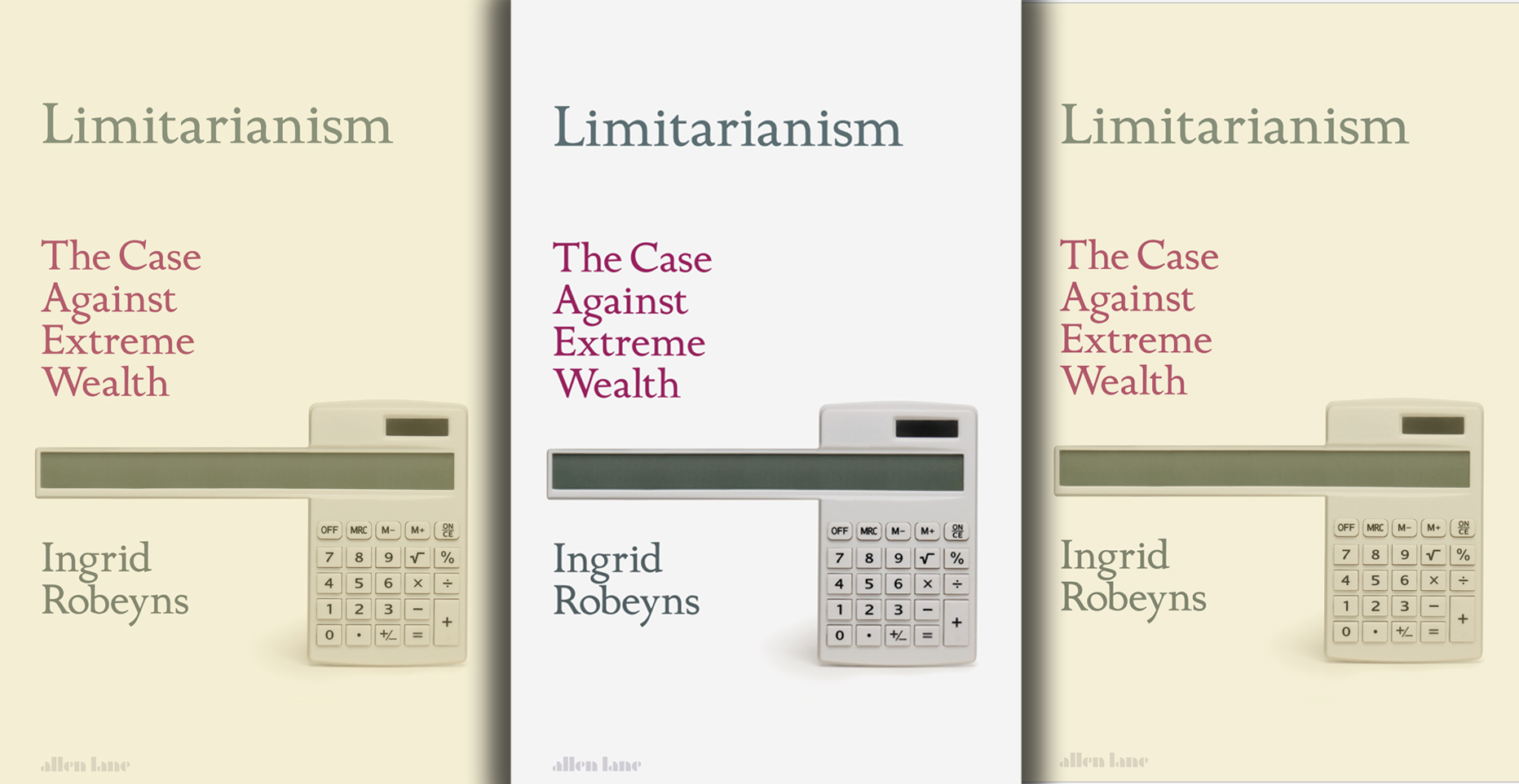All Article Properties:
{
"objectType": "Article",
"id": "2820807",
"signature": "Article:2820807",
"url": "https://prod.dailymaverick.co.za/article/2025-07-27-extreme-wealth-corrodes-democracy-the-case-for-a-maximum-wealth-limit/",
"shorturl": "https://www.dailymaverick.co.za/article/2820807",
"slug": "extreme-wealth-corrodes-democracy-the-case-for-a-maximum-wealth-limit",
"contentType": {
"id": "1",
"name": "Article",
"slug": "article",
"editor": "default"
},
"views": 0,
"comments": 1,
"preview_limit": null,
"rating": 0,
"excludedFromGoogleSearchEngine": 0,
"status": "publish",
"title": "‘Extreme wealth corrodes democracy’ — making the case for a maximum wealth limit",
"firstPublished": "2025-07-27 20:33:49",
"lastUpdate": "2025-07-27 20:33:50",
"categories": [
{
"id": "38",
"name": "World",
"signature": "Category:38",
"slug": "world",
"typeId": {
"typeId": "1",
"name": "Daily Maverick",
"slug": "",
"includeInIssue": "0",
"shortened_domain": "",
"stylesheetClass": "",
"domain": "prod.dailymaverick.co.za",
"articleUrlPrefix": "",
"access_groups": "[]",
"locale": "",
"preview_limit": null
},
"parentId": null,
"parent": [],
"image": "",
"cover": "",
"logo": "",
"paid": "0",
"objectType": "Category",
"url": "https://prod.dailymaverick.co.za/category/world/",
"cssCode": "",
"template": "default",
"tagline": "",
"link_param": null,
"description": "",
"metaDescription": "",
"order": "0",
"pageId": null,
"articlesCount": null,
"allowComments": "1",
"accessType": "freecount",
"status": "1",
"children": [],
"cached": true
},
{
"id": "134172",
"name": "Maverick Citizen",
"signature": "Category:134172",
"slug": "maverick-citizen",
"parentId": null,
"parent": [],
"image": "",
"cover": "",
"logo": "",
"paid": "0",
"objectType": "Category",
"url": "https://prod.dailymaverick.co.za/category/maverick-citizen/",
"cssCode": "",
"template": "default",
"tagline": "",
"link_param": null,
"description": "",
"metaDescription": "",
"order": "0",
"pageId": null,
"articlesCount": null,
"allowComments": "1",
"accessType": "freecount",
"status": "1",
"children": [],
"cached": true
}
],
"access_groups": [],
"access_control": false,
"counted_in_paywall": true,
"content_length": 5989,
"contents": "<p><span style=\"font-weight: 400;\">Think about these facts for a moment. </span></p><p><span style=\"font-weight: 400;\">There are slightly more than 3,000 billionaires in the world and it is expected that we are only a few years away from the world’s first trillionaire. Between 1989 and 2018 this top 1% grew their wealth from $8.4-trillion to $29.5-trillion, while the bottom 50% incurred a net loss of wealth of $900-billion.</span></p><p><span style=\"font-weight: 400;\">On the other hand, according to </span><a href=\"https://blogs.worldbank.org/en/voices/further-strengthening-how-we-measure-global-poverty\"><span style=\"font-weight: 400;\">new calculations from the World Bank</span></a><span style=\"font-weight: 400;\">, there are more than 808 million people worldwide living in extreme poverty – that is less than $3 per day. Thirty million people live in poverty in South Africa and of that number nearly 14 million live below the food poverty line of R796 per month. </span></p><p><span style=\"font-weight: 400;\">Is this just the natural order of things? </span></p><p><span style=\"font-weight: 400;\">According to Ingrid Robeyns, the author of </span><a href=\"https://www.penguinrandomhouse.co.za/book/limitarianism-case-against-extreme-wealth/9780241578193\"><span style=\"font-weight: 400;\">Limitarianism: The Case Against Extreme Wealth</span></a><span style=\"font-weight: 400;\"> (Penguin, 2024), most certainly not! </span></p><p><span style=\"font-weight: 400;\">In her quest to unpack the deleterious effects of extreme wealth Robeyns has produced a meticulously researched and referenced book. Drawing on her disciplines as an expert in economics and philosophy, and as a one-time student of Amatya Sen, in Limitarianism she unleashes reason in the case against wealth, through the splicing of economics, philosophy, history, morals and ethics. </span></p><p><span style=\"font-weight: 400;\">In addition, Robeyns bases her analysis in part on interviews with several billionaires, particularly those who are trying to limit their own wealth by calling for higher taxation and who have deep insights into the behaviours of their own class. In the US they have formed an organisation called </span><a href=\"https://patrioticmillionaires.org/about/\"><span style=\"font-weight: 400;\">Patriotic Millionaires</span></a><span style=\"font-weight: 400;\">. </span></p><p><span style=\"font-weight: 400;\">In an argument that is structured with the precision of a founding affidavit her chapters calmly deconstruct extreme wealth on the grounds that:</span></p><ul><li>“It’s Keeping the Poor in Poverty While Inequality Grows”;</li><li>“It’s Dirty Money”;</li><li>“It’s Undermining Democracy”;</li><li>“It’s Setting the World on Fire”; and</li><li>“Nobody Deserves to Be a Multimillionaire.”</li></ul><p><span style=\"font-weight: 400;\">Having set out the evidence, the core of Robeyn’s argument is that there should be a limit (she suggests of 10 million) on individual wealth and that inheritance above a certain amount should be forbidden. </span></p><p><span style=\"font-weight: 400;\">Pointing to “a massive intergenerational wealth transfer” – amounting to “a staggering $84-trillion that will be transferred to the next generation by 2045” – she quotes philosopher DW Haslett: “We abolished inheritance of political power; when, then, should we not abolish the inheritance of economic power, too?” </span></p><p><span style=\"font-weight: 400;\">The excess should be returned to the state which, among other options, could recycle it into a universal basic income grant, or savings account for young people, available as a leg-up when they reach adulthood.</span></p><p><span style=\"font-weight: 400;\">Robeyns finishes by making seven proposals for measures to limit wealth, including that there should be a “balance of economic power”:</span></p><p><span style=\"font-weight: 400;\">“[In liberal democracies] We all agree that we need a system of checks and balances; if we delegate political power to one institution, then we need countervailing power in others. Why then don’t we have such a balance of economic power? That economics is a domain of power was first recognised by thinkers centuries ago.”</span></p><p><span style=\"font-weight: 400;\">And there’s the crux of our modern dilemma. In the neoliberal era elected politicians have surrendered to the economic power of the wealthy and by doing so they have surrendered their ability to carry out the will of the people on the most basic human rights, such as access to healthcare services, education and meaningful employment.</span></p><p><span style=\"font-weight: 400;\">These might seem like a set of radical arguments. They are not. I think they are utopian, in the best sense of utopianism, that is, thinking the “impossible” in order to make it possible. This was an approach advocated for by people like Rick Turner, the philosopher assassinated by apartheid state agents in January 1978.</span></p><p><b>Read more: </b><a href=\"https://www.dailymaverick.co.za/article/2022-03-03-activists-urged-to-reimagine-civil-society-and-the-fight-against-inequality/\"><span style=\"font-weight: 400;\">Activists urged to reimagine civil society and the fight against inequality</span></a></p><p><span style=\"font-weight: 400;\">We only think it’s a radical proposal because we have normalised extreme wealth, just as we have normalised extreme poverty and inequality. </span></p><p><span style=\"font-weight: 400;\">Yet, there are other ways to organise society and economy, and if you accept Robeyns’s evidence, that is more a matter of necessity than choice.</span></p><p><span style=\"font-weight: 400;\">At the time I contemplated buying the book, I ummed and ahhed, struggling with a sense of déjà vu. </span><i><span style=\"font-weight: 400;\">“I’ve read these books before. I’ve heard these arguments before. Is there anything new to be said about wealth and inequality?</span></i><span style=\"font-weight: 400;\">’ I asked myself.</span></p><p><span style=\"font-weight: 400;\">But I was wrong. Limitarianism is fresh. It’s accessible. It’s full of facts, analysis and dot-joining. I would particularly recommend it to those who might think that extreme wealth is okay, and I would plead that you read it with an open mind. </span></p><p><span style=\"font-weight: 400;\">We are 10 years after Thomas Piketty’s magnum opus, </span><span style=\"font-weight: 400;\">Capital in the Twenty-First Century, and little has changed.</span><span style=\"font-weight: 400;\"> In fact the opposite. Extreme wealth accumulation is now supercharged, what John Berger denigrated as the “inalienable right to profit” now the driving political philosophy of the leader of the world’s largest economy.</span></p><p><span style=\"font-weight: 400;\">Indeed, the irony is that it seems the more people have become acquainted with the facts the more numb and disempowered we seem to have become. </span></p><p><span style=\"font-weight: 400;\">As a social justice activist, I drew the following conclusions from reading it: It’s time activists focused sustained attention on the case for wealth control, as much as we do on poverty elimination. While we may have debunked the neoliberal idea that wealth trickles down (or rather, it has debunked itself), the more important point is in fact the opposite: that unlimited wealth accumulation creates poverty. </span></p><p><span style=\"font-weight: 400;\">As Robeyns says: “Extreme wealth concentration is, first and foremost, a structural problem. We should therefore focus above all else on the structural changes that are needed. We shouldn’t become fixated on rich individuals per se, unless they are actively hampering the structural changes that are needed.”</span></p><p><span style=\"font-weight: 400;\">It’s time for a measured, evidence-based campaign against extreme wealth that helps make people aware of how wealth is being abused in many ways that threaten democracy, human life and ultimately the planet itself. </span><b>DM</b></p>",
"teaser": "%%page%% ‘Extreme wealth corrodes democracy’: The case for a maximum wealth limit",
"externalUrl": "",
"sponsor": null,
"authors": [
{
"id": "214",
"name": "Mark Heywood",
"image": "https://cdn.dailymaverick.co.za/dailymaverick/wp-content/uploads/2023/12/IMG_9971-copy.jpg",
"url": "https://www.dailymaverick.co.za/author/markheywood/",
"editorialName": "markheywood",
"department": "",
"name_latin": ""
}
],
"description": "In her quest to unpack the deleterious effects of extreme wealth Ingrid Robeyns has produced a meticulously researched and referenced book.",
"keywords": [
{
"type": "Keyword",
"data": {
"keywordId": "8791",
"name": "Extreme poverty",
"url": "https://www.dailymaverick.co.za/article_tag//",
"slug": "extreme-poverty",
"description": "",
"articlesCount": 0,
"replacedWith": null,
"display_name": "Extreme poverty",
"translations": null,
"collection_id": null,
"image": ""
}
},
{
"type": "Keyword",
"data": {
"keywordId": "9495",
"name": "Wealth",
"url": "https://www.dailymaverick.co.za/article_tag//",
"slug": "wealth",
"description": "",
"articlesCount": 0,
"replacedWith": null,
"display_name": "Wealth",
"translations": null,
"collection_id": null,
"image": ""
}
},
{
"type": "Keyword",
"data": {
"keywordId": "11510",
"name": "Mark Heywood",
"url": "https://www.dailymaverick.co.za/article_tag//",
"slug": "mark-heywood",
"description": "",
"articlesCount": 0,
"replacedWith": null,
"display_name": "Mark Heywood",
"translations": null,
"collection_id": null,
"image": ""
}
},
{
"type": "Keyword",
"data": {
"keywordId": "70860",
"name": "review",
"url": "https://www.dailymaverick.co.za/article_tag//",
"slug": "review",
"description": "",
"articlesCount": 0,
"replacedWith": null,
"display_name": "review",
"translations": null,
"collection_id": null,
"image": ""
}
},
{
"type": "Keyword",
"data": {
"keywordId": "79263",
"name": "Billionaires",
"url": "https://www.dailymaverick.co.za/article_tag//",
"slug": "billionaires",
"description": "",
"articlesCount": 0,
"replacedWith": null,
"display_name": "Billionaires",
"translations": null,
"collection_id": null,
"image": ""
}
},
{
"type": "Keyword",
"data": {
"keywordId": "103911",
"name": "Universal Basic Income",
"url": "https://www.dailymaverick.co.za/article_tag//",
"slug": "universal-basic-income",
"description": "",
"articlesCount": 0,
"replacedWith": null,
"display_name": "Universal Basic Income",
"translations": null,
"collection_id": null,
"image": ""
}
},
{
"type": "Keyword",
"data": {
"keywordId": "437115",
"name": "maximum wealth limit",
"url": "https://www.dailymaverick.co.za/article_tag//",
"slug": "maximum-wealth-limit",
"description": "",
"articlesCount": 0,
"replacedWith": null,
"display_name": "maximum wealth limit",
"translations": null,
"collection_id": null,
"image": ""
}
},
{
"type": "Keyword",
"data": {
"keywordId": "437116",
"name": "Ingrid Robeyns",
"url": "https://www.dailymaverick.co.za/article_tag//",
"slug": "ingrid-robeyns",
"description": "",
"articlesCount": 0,
"replacedWith": null,
"display_name": "Ingrid Robeyns",
"translations": null,
"collection_id": null,
"image": ""
}
},
{
"type": "Keyword",
"data": {
"keywordId": "437117",
"name": "Limitarianism",
"url": "https://www.dailymaverick.co.za/article_tag//",
"slug": "limitarianism",
"description": "",
"articlesCount": 0,
"replacedWith": null,
"display_name": "Limitarianism",
"translations": null,
"collection_id": null,
"image": ""
}
},
{
"type": "Keyword",
"data": {
"keywordId": "437118",
"name": "The Case Against Extreme Wealth",
"url": "https://www.dailymaverick.co.za/article_tag//",
"slug": "the-case-against-extreme-wealth",
"description": "",
"articlesCount": 0,
"replacedWith": null,
"display_name": "The Case Against Extreme Wealth",
"translations": null,
"collection_id": null,
"image": ""
}
}
],
"short_summary": null,
"source": null,
"related": [],
"options": [],
"attachments": [
{
"id": "3080080",
"name": "Heywood-review-Limitarianism",
"description": "",
"focal": "50% 50%",
"width": 0,
"height": 0,
"url": "https://cdn.dailymaverick.co.za/dailymaverick/wp-content/uploads/2025/07/Heywood-review-Limitarianism-copy.jpg",
"transforms": [
{
"x": "200",
"y": "100",
"url": "https://cdn.dailymaverick.co.za/i/Zmn_1vtyXae0H5zEwjDVgpvMQqg=/200x100/smart/filters:strip_exif()/file/dailymaverick/wp-content/uploads/2025/07/Heywood-review-Limitarianism-copy.jpg"
},
{
"x": "450",
"y": "0",
"url": "https://cdn.dailymaverick.co.za/i/T5qwVIYyMf4HIFeXKWiIdqgoVZo=/450x0/smart/file/dailymaverick/wp-content/uploads/2025/07/Heywood-review-Limitarianism-copy.jpg"
},
{
"x": "800",
"y": "0",
"url": "https://cdn.dailymaverick.co.za/i/YRzv4lESRd-WOJFEYl5zClzN8QA=/800x0/smart/filters:strip_exif()/file/dailymaverick/wp-content/uploads/2025/07/Heywood-review-Limitarianism-copy.jpg"
},
{
"x": "1200",
"y": "0",
"url": "https://cdn.dailymaverick.co.za/i/bW9BDdKUhAx2-MeCgEuA9fC7ADo=/1200x0/smart/filters:strip_exif()/file/dailymaverick/wp-content/uploads/2025/07/Heywood-review-Limitarianism-copy.jpg"
},
{
"x": "1600",
"y": "0",
"url": "https://cdn.dailymaverick.co.za/i/zzlUFoxIsUj5t_T2U5adEuh-vio=/1600x0/smart/filters:strip_exif()/file/dailymaverick/wp-content/uploads/2025/07/Heywood-review-Limitarianism-copy.jpg"
}
],
"url_thumbnail": "https://cdn.dailymaverick.co.za/i/Zmn_1vtyXae0H5zEwjDVgpvMQqg=/200x100/smart/filters:strip_exif()/file/dailymaverick/wp-content/uploads/2025/07/Heywood-review-Limitarianism-copy.jpg",
"url_medium": "https://cdn.dailymaverick.co.za/i/T5qwVIYyMf4HIFeXKWiIdqgoVZo=/450x0/smart/file/dailymaverick/wp-content/uploads/2025/07/Heywood-review-Limitarianism-copy.jpg",
"url_large": "https://cdn.dailymaverick.co.za/i/YRzv4lESRd-WOJFEYl5zClzN8QA=/800x0/smart/filters:strip_exif()/file/dailymaverick/wp-content/uploads/2025/07/Heywood-review-Limitarianism-copy.jpg",
"url_xl": "https://cdn.dailymaverick.co.za/i/bW9BDdKUhAx2-MeCgEuA9fC7ADo=/1200x0/smart/filters:strip_exif()/file/dailymaverick/wp-content/uploads/2025/07/Heywood-review-Limitarianism-copy.jpg",
"url_xxl": "https://cdn.dailymaverick.co.za/i/zzlUFoxIsUj5t_T2U5adEuh-vio=/1600x0/smart/filters:strip_exif()/file/dailymaverick/wp-content/uploads/2025/07/Heywood-review-Limitarianism-copy.jpg",
"type": "image"
}
],
"summary": "In a world where billionaires are multiplying while 808 million people struggle to scrape by on less than three bucks a day, Ingrid Robeyns’s Limitarianism argues that it’s high time we put a cap on wealth – because if we can abolish inherited political power, why not economic power too?",
"introduction": "<ul><li>Over 3,000 billionaires hold nearly $30 trillion, while the bottom 50% lost $900 billion in wealth from 1989 to 2018.</li><li>Extreme poverty affects over 808 million globally, with 30 million in South Africa, 14 million of whom live below the food poverty line.</li><li>Ingrid Robeyns' book, *Limitarianism*, argues for limits on wealth and inheritance, emphasizing the need for checks on economic power to combat inequality.</li><li>Robeyns proposes redistributing excess wealth to support universal basic income and enhance access to essential services, challenging the normalization of extreme wealth and poverty.</li></ul>",
"template_type": null,
"dm_custom_section_label": "Maverick Citizen, World",
"dm-key-theme": null,
"dm-article-theme": null,
"dm-user-need": null,
"dm-disable-comments": false,
"elements": [],
"seo": {
"search_title": "%%page%% ‘Extreme wealth corrodes democracy’: The case for a maximum wealth limit",
"search_description": "In her quest to unpack the deleterious effects of extreme wealth Ingrid Robeyns has produced a meticulously researched and referenced book.",
"social_title": "‘Extreme wealth corrodes democracy’ — making the case for a maximum wealth limit",
"social_description": "In her quest to unpack the deleterious effects of extreme wealth Ingrid Robeyns has produced a meticulously researched and referenced book.",
"social_image": ""
},
"time_to_read": 220,
"cached": true
} 




